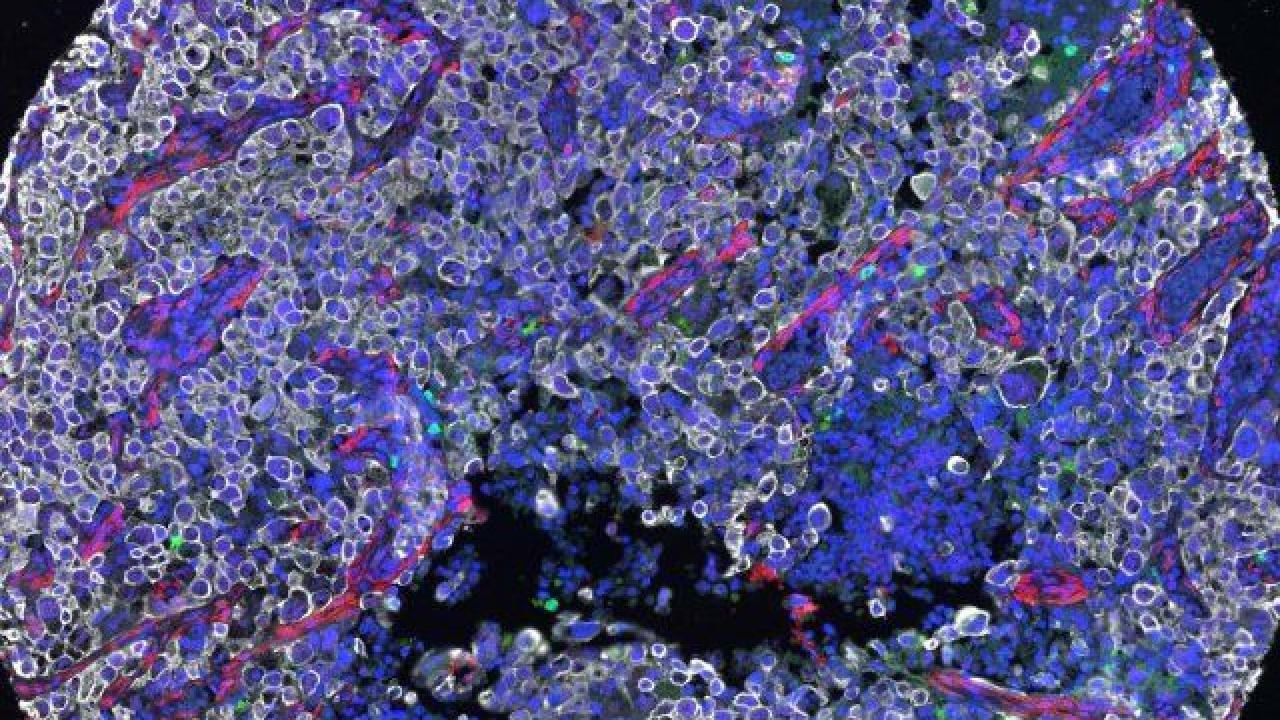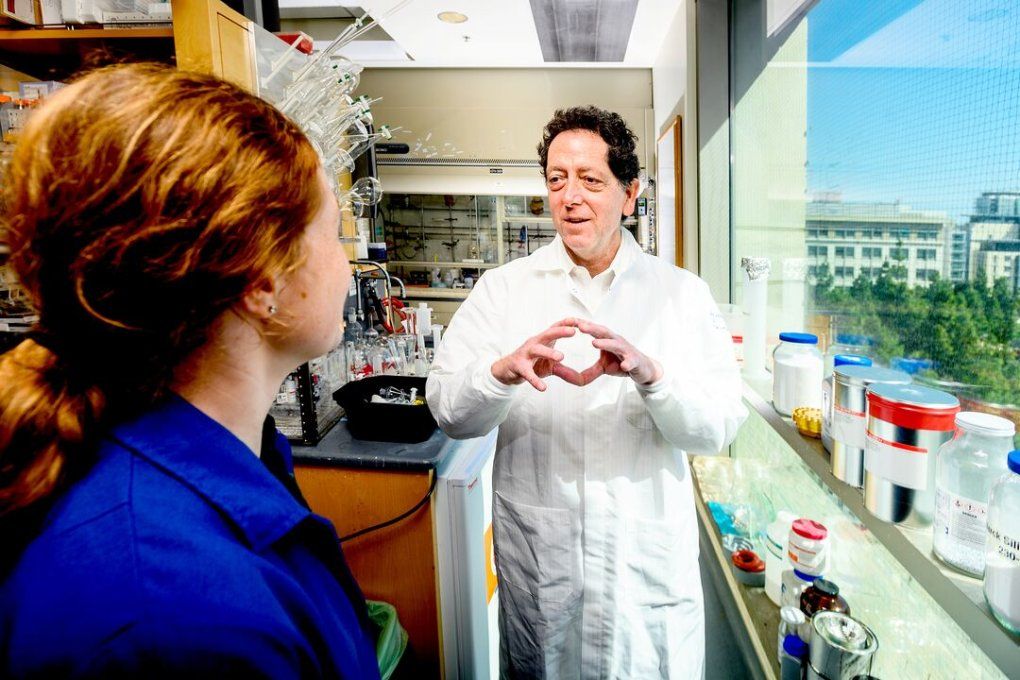
Tumor cells are notoriously good at evading the human immune system; they put up physical walls, wear disguises and handcuff the immune system with molecular tricks. Now, UC San Francisco researchers have developed a drug that overcomes some of these barriers, marking cancer cells for destruction by the immune system.
The new therapy, described in Cancer Cell, pulls a mutated version of the protein KRAS to the surface of cancer cells, where the drug-KRAS complex acts as an “eat me” flag. Then, an immunotherapy can coax the immune system to effectively eliminate all cells bearing this flag.

UCSF chemist Kevan Shokat speaks with graduate student Megan Moore in his lab. Photo by Noah Berger
“The immune system already has the potential to recognize mutated KRAS, but it usually can’t find it very well. When we put this marker on the protein, it becomes much easier for the immune system,” said UCSF chemist and Howard Hughes Medical Institute Investigator Kevan Shokat, PhD, who helped lead the new work.
KRAS mutations are found in about one quarter of all tumors, making them one of the most common gene mutations in cancer. Mutated KRAS is also the target of sotorasib, which the Food and Drug Administration (FDA) has given preliminary approval for use in lung cancer, and the two approaches may eventually work well in combination.
“It’s exciting to have a new strategy leveraging the immune system that we can combine with targeted KRAS drugs,” said Charles Craik, PhD, a lead study author and professor of pharmaceutical chemistry at UCSF. “We suspect that this could lead to deeper and longer responses for cancer patients.”
Turning Cancer Markers Inside Out
The immune system typically recognizes foreign cells because of unusual proteins that jut out of their surfaces. But when it comes to cancer cells, there are few unique proteins found on their outsides. Instead, most proteins that differentiate tumor cells from healthy cells are inside the cells, where the immune system can’t detect them.